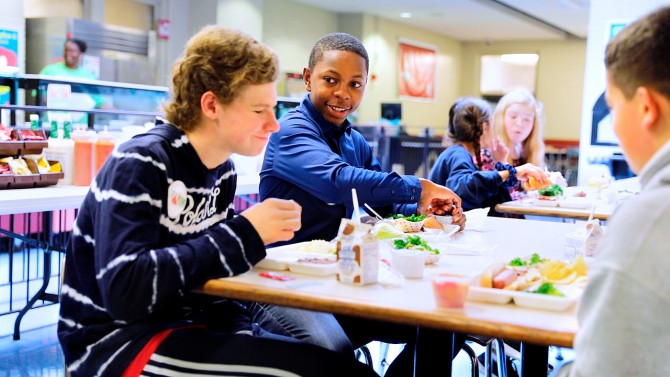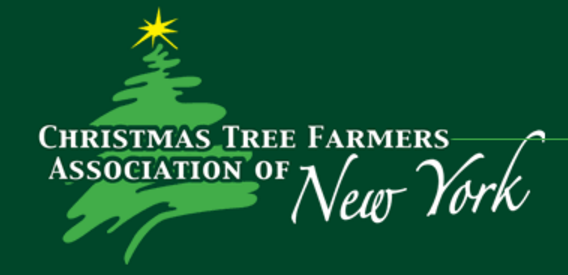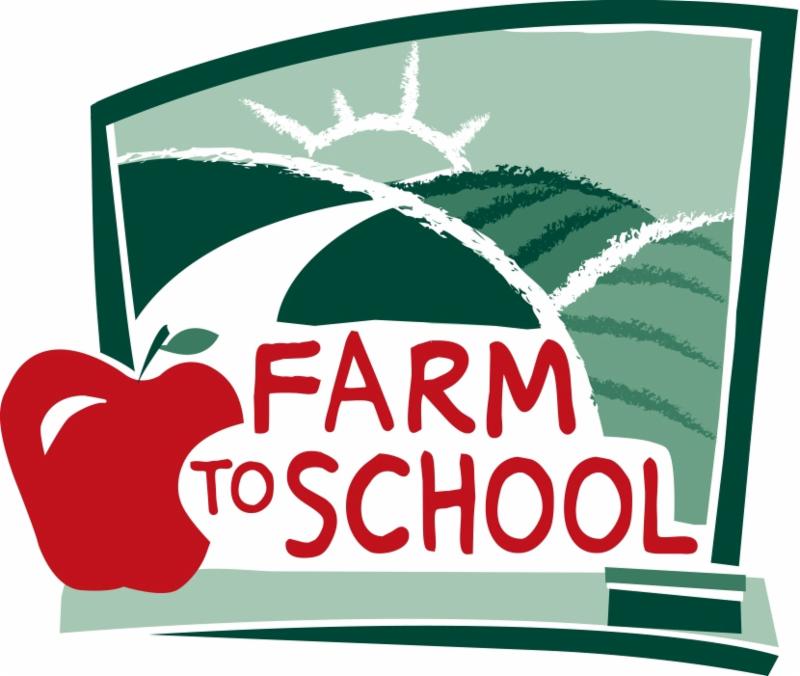|
New York Agriculture in the Classroom | December 2019
|
|
Stay Up To Date!
Want to stay up to date with NYAITC? Follow us on social media and never miss out on exciting news and opportunities!
|
Find us on Social Media!
Are you incorporating agriculture into your classroom? We want to see, tag us on social media @NewYorkAITC on Twitter and NYAITC on Facebook.
Give us a follow at @nyagintheclassroom on Instagram and see what's happening across the state in classrooms just like yours.

|
Important Dates:
Dec. 13- Farm to School Grant Applications Due
Dec. 15
- Maple Royalty Pageant Applications Due
Jan. 3- Grow with Us Grant Applications Due
Jan. 3-4
- Mid-Winter Maple Classic
Jan. 6- Jr. Iron Chef Registration Opens
June 23-26- National AITC Conference
|
|
|
New York Agriculture in the Classroom 2020 Teacher of the Year Announced!

Each year, New York Agriculture in the Classroom recognizes exceptional teachers who incorporate learning through a lens of agriculture into their curriculums.
We are pleased to announce Jeremiah Best from Town of Webb Central School in Old Forge as our Teacher of the Year recipient.
For his excellence in teaching about and utilizing agriculture in their classroom, Jeremiah will have the opportunity to attend the National Agriculture in the Classroom Conference in Salt Lake City, Utah in June, with expenses paid, and an at-school recognition of his accomplishments.
Learn more about this exceptional educator and the Teacher of the Year program on our website.
|
Grow with Us Grant: Deadline Approaching

In an effort to connect students with food and recognize deserving classrooms, New York Agriculture in the Classroom is again awarding grow systems through the Grow With Us Grant for the third consecutive year.
The
Grow with Us Grant allows schools to apply for
three types of grow systems. Schools should apply for the grow system that would best meet their educational goals, classroom space needs, and consider their experience level in school gardening and curriculum integration.
Applications are open now and due
Friday, January 3, 2020.
Visit our website to learn more about the eligibility requirements, view photos of the featured grow systems, and apply for the grant.
|
New York Beef Council Launches New "Beefshi For the Classroom" Program

New York Beef Council and the North American Meat Institute, a contractor to the Beef Checkoff, are offering the Beefshi in the Classroom program. This program is designed to provide middle and high school teachers resources and financial support to integrate hands-on, culinary exploration into their classrooms. Beefshi is a new and fun culinary concept perfect for creating easy to prepare school lunches. Through this program classrooms will be eligible to receive reimbursement for up to $200 in beefshi recipe ingredient purchases. Visit the
New York Beef Council's website for program guidelines.
|
|
|
Farm to School Grows New York Agriculture

New York Farm to School programs, which provide K-12 students with fresh, locally sourced foods and expand markets for farmers, are sprouting statewide thanks to efforts by
Cornell Cooperative Extension
to connect schools and growers. Check out this article to learn more about Farm to School, which is sprouting up all across our state.
|
It's Time for Holiday Lessons!

You can't have the holidays without agriculture! Enrich your holiday curriculum with FREE educational resources from the Christmas Tree Farmers Association of NY. Through these multi-disciplinary lessons, students will increase their ecological literacy and their understanding of the landscape in which they live. They'll learn the historical context for decorating with evergreens at the darkest time of year-- a tradition that long predates the religious celebration of Christmas.
Check out all the available resources on
our
website
!
|
2019 Farm to School Grant Applications Open

The FY 2020 Farm to School Grant Request for Applications is now available for schools and other eligible groups to apply. The USDA will award up to $10 million in competitive grants to eligible entities through the Farm to School Grant Program in fiscal year 2020. Each grant helps implement Farm to School programs that increase access to local food in schools, providing students with quality meals at a reasonable cost while also supporting local producers.
For more
information, visit grants.gov.
Applications are due by December 13, 2019.
|
Maple Royalty Pageant Seeking Applicants

The New York State Maple Royalty program is seeking applicants between the ages of 15-21 who are passionate about maple products for the Maple King and Queen pageant in January.
Contestants need not be experienced in the maple industry but should be willing to learn about the industry and interested in promoting maple to the general public.
Interested contestants should contact pageant director Laurie Jean Britton at 315- 717-6288 or maplechick1@msn.com for an application, questions or additional information.
Applications are due by
December 15, 2019
.
|
North Country Jr. Iron Chef Competition

Starting January 6, 2020 schools in St. Lawrence, Jefferson, Lewis, Franklin, Clinton, Essex, and Hamilton counties can register online for the North Country Jr. Iron Chef competition.
North Country Jr. Iron Chef is a competition for teams of regional
middle and high school students
to develop and prepare tasty, healthy recipes
which could be realistically prepared in a school cafeteria.
Register and learn more at
ncjrironchef.org
.
|
| Agricultural Literacy Grant Spotlight |
Nicole Foti- Ulster BOCES
"Fabric Comes from Farms!"
The "Fabric Comes from Farms!" project will educate students about the agricultural origins and processing methods behind the varied natural fabrics used in Fashion and Home Décor Design. Through this project, Ms. Foti will develop and implement a curriculum to enhance fashion and home economics classroom lessons that includes field trips, guest speakers, hands-on projects, and classroom activities. Students will begin by exploring the area's sheep, goat and alpaca farms to learn about the different animal breeds and the characteristics of the fibers derived from them. On the farm they will learn about animal management practices, including but not limited to shearing, and their impact on fiber fineness and quality. In the next stage, students will study fiber processing methods utilized by regional yarn milling and commercial machine knitting and weaving operations. Throughout the curriculum, Ms. Foti will highlight the many different career opportunities available at all stages of the supply chain.
While the project will focus on area sheep and alpaca farms, students will also learn about the origin and production of other natural fibers. The curriculum will include a unit on cotton production in the US - from farm to fabric. Additionally, students will explore fabrics made from flax and industrial hemp, which are new crops for the Hudson Valley. Their project partners at SUNY New Paltz and SUNY FIT are developing specifications for using these bast fibers in locally processed fabrics, and their project will contain a unit on working with these fibers/materials and field trips to these colleges. SUNY Ulster is also involved through their participation in the Hudson Valley Textile Project (HVTP).
Learn more about the Agricultural Literacy Grant and view the other recipients on our
website
.
|
Who Grew My Soup?
Students will identify the source of the food they eat and investigate the processes and people involved in getting food from the farm to their spoon.In this lesson they will make the connection between food and farms, identify where their food comes from, and complete a graphing activity. This lesson is available for grades K-2 and grades 3-5.
|
Value-Adding on a Christmas Farm
In this activity, students will learn how to add value to Christmas trees by making scented pillows from balsam fir needles which can be used for gifts or potentially as a fundraiser for your classroom. Older students can also calculate the potential income from selling their value-added projects. To enhance this activity, consider pairing it with the above resources from the Christmas Tree Farmers Association of New York or the Discover Christmas Trees lesson (grades K-2 or grades 3-5).
|
Corn an A-maizing Plant: Food, Fuel, and Plastic
Students will examine the growth, composition, history, and uses of corn through a close reading activity, discussion of renewable and non-renewable resources, and hands-on exploration of bioplastics made from corn in this lesson.
|
In this lesson, students will learn about the process of getting almonds from farm to table and distinguish the difference between facts and opinions as they learn about each stage and season of almond growth.
|
| Middle School/ High School Resources |
Using the context of apples, students will apply their knowledge of heredity and genetics to distinguish between sexual and asexual reproduction as they explain how new varieties of apples are developed and then propagated to meet consumer demand for a tasty, uniform, consistent product. This
lesson is appropriate for students in grades 6-8.
|
Climate Change Phenomena: Bananas in Our Breadbasket?
In this lesson, students will explore the carbon cycle and evaluate associated phenomena of climate as they discover the impact climate change could have on the farms that produce our food.
|
Students will use the
Claim, Evidence, and Reasoning
model to evaluate styles of housing used for laying hens in the production of eggs. Using critical thinking skills, students will compare housing styles, determine which system meets their animal welfare standards, and engineer their own hen house model to meet the needs of laying hens. This lesson is recommended for students in grades 9-12.
|
A Tale of Two Burgers: Beef and Plant-based Protein
In this lesson, students will compare the components of beef and plant-based burgers by determining the production and processing methods of each product; evaluate the ingredients and nutritional differences between beef and plant-based products; and discuss different points of view in the agricultural industry concerning plant-based proteins and traditional beef.
|
 |
Where would I be in an Evergreen Tree?
This beautifully illustrated book tells the story of the life cycle of a conifer and the variety of plants and animals that the evergreen supports through its existence. In poetic form, the book tells how a conifer makes and spreads seeds, how those small seeds take root and grow into some of the biggest living organisms on earth. In this
book and activity combo lesson,
students will explore how evergreen trees grow from cone to maturity by reading
Where Would I Be in an Evergreen Tree?
by Jennifer Blomgren and by making a bird feeder from a pine cone.
|
The Tree Farmer
Challenged by his grandson as to how he can grow beautiful trees only to cut them down, the tree farmer shares his knowledge and understanding of trees as a renewable resource. He also shares his love of the products trees provide and how they touch the souls of the people whose lives they grace. Written about the family tree farm of the Rolling Stones' keyboardist, Chuck Leavell, the author shares his second life as a tree farmer. This is a book that shares a farmer's love of the land and the wise use of its resources.
|

Harvest Year
This book is 32 pages long and includes color pictures and text descriptions of the harvest of many food crops including watermelons, carrots, strawberries, and many more.
|
|
|
|
|
Copyright © 2018. All Rights Reserved.
|
|
|
|